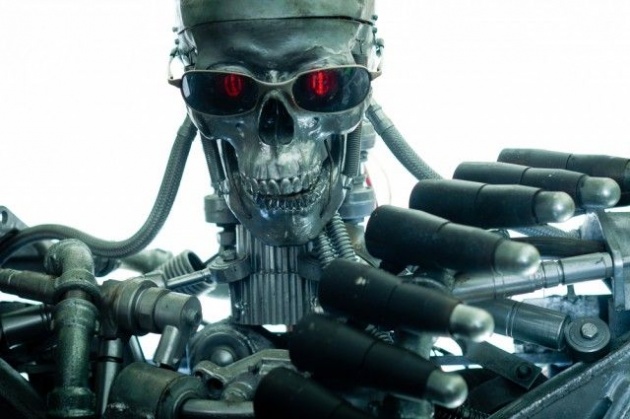Scientists and Engineers Warn Of The Dangers Of Artificial Intelligence
An open letter calling for caution to ensure intelligent machines do not run beyond our control has been signed by a large and growing number of people, including some of the leading figures in artificial intelligence.
Fears of our creations turning on us stretch back at least as far as Frankenstein, and films such as The Terminator gave us a whole new language to discuss what would happen when robots stopped taking orders. However, as computers beat (most of) us at Jeopardy andself-driving cars appear on our roads, we may be getting closer to the point where we will have to tackle these issues.
In December, Stephen Hawking kicked off a renewed debate on the topic. As someone whose capacity to communicate depends on advanced computer technology, Hawking can hardly be dismissed as a Luddite, and his thoughts tend to attract attention.The letter was initiated by the Future of Life Institute, a volunteer organization that describes itself as “working to mitigate existential risks facing humanity.” The letter notes:"As capabilities in these areas and others cross the threshold from laboratory research to economically valuable technologies, a virtuous cycle takes hold whereby even small improvements in performance are worth large sums of money, prompting greater investments in research. There is now a broad consensus that AI research is progressing steadily, and that its impact on society is likely to increase. The potential benefits are huge, since everything that civilization has to offer is a product of human intelligence; we cannot predict what we might achieve when this intelligence is magnified by the tools AI may provide, but the eradication of disease and poverty are not unfathomable. Because of the great potential of AI, it is important to research how to reap its benefits while avoiding potential pitfalls."The authors add that “our AI systems must do what we want them to do,” and have set out research priorities they believe will help “maximize the societal benefit of AI.”
Anyone can sign, and at the time of this writing well over a thousand people have done so. While many did not indicate an affiliation, names such as Elon Musk and Hawking himself are easily recognized. Many of the other names on the list are leading researchers in IT or philosophy, including the IBM team behind the Watson supercomputer.So much intellectual and financial heft may make their prospects good for conducting research in the areas proposed. Musk has said he invests in companies researching AI in order to keep an eye on them. He worries that even if most researchers behave responsibly, in the absence of international regulation, a single rogue nation or corporation could produce self-replicating machines whose priorities might be very different to humanity's, and once industries become established they become resistant to control



